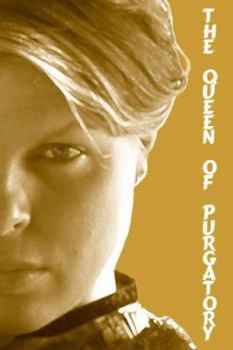The Queen of Purgatory
It was something no one in Parkin, Arkansas could have ever predicted - on the same day that the local museum is hosting a reenactment of Hernando de Soto meeting the Casqui Indians, three young girls... This description may be from another edition of this product.
Format:Paperback
Language:English
ISBN:1931275815
ISBN13:9781931275811
Release Date:December 2005
Publisher:Chenault and Gray
Length:213 Pages
Weight:0.69 lbs.
Dimensions:0.5" x 6.2" x 8.1"
Customer Reviews
3 ratings
Pareidolia is a psychological phenomenon
Published by Thriftbooks.com User , 18 years ago
Everywhere we look we see something recognizable. Our vision is just that...a vision. We construct our visions. Jung believed that some visual constructs, like UFOs or Marian apparitions, signify a soul seeking after wholeness. For Jung, wholeness usually meant unifying female and male aspects of our psyches in an alchelmical process of individuation. An apparition appears in Guy Lancaster's novel, The Queen of Purgatory, and individuation is set in motion. The novel draws a lot of energy from the abrupt contrast between the embracing charm of Parkin, Arkansas and the violent purgations that occur in the lives of its residents. Like a Greek tragedy, Guy Lancaster paces his novel with an irrefutable progression of consequences so that the reader experiences the same horror that we crave in the plays Aeschylus and Sophocles. Lancaster's novel, besides being an enthralling read, represents a progression of Southern literature by opening two doors. One door leads out of the Southern microcosm into the retributive global cycle of human history, and the other door leads to a dizzying view overlooking the geography of hell. Highly recommended.
Definite must-read.
Published by Thriftbooks.com User , 19 years ago
This is a very well-written novel, with great plot movement (lots of juicy threads)and character development. Made me want to sit down and have a cup of tea with Faith and Charity. Where else can you find Nazis, Marian apparitions, and the Mississippi Delta woven together so eloquently but in this book? I finished it days ago, but I still haven't left Parkin, Arkansas. A definite must-read.
It is the Dead that govern; the Living only obey.
Published by Thriftbooks.com User , 19 years ago
Guy Lancaster's first novel, The Queen of Purgatory, is reminiscent of James Joyce's "The Dead," in which Joyce examines the powerful sway that the Dead hold over all the living. Lancaster's narration is strong and vivid, full of character description so detailed that one quickly sympathizes with all the characters, and one finds that in these characters, as in Shakespeare's, people are rarely a Michael Casio or an Iago: we tend to be a mixture of both good and evil. The story opens with Tommy Pilot, the Baptist preacher of the small-town Parkin,Arkansas. It is September, and the town historical society is re-enacting the first Christian service west of the Mississippi. The residents call out amens to the scripted words of the priest until they hear him pray in Latin. "I thought this was supposed to be the first Christian service in Arkansas?" "Me, too, but there ain't any Christians here, just Catholics." It is into this decidedly un-Catholic town that the Mother of the Church, Mary, appears to three Baptist girls in the cemetery nearby the Indian burial mound, and she gives them this message: Remember your dead. From this point, the story widens, examining a host of characters: a priest from Little Rock who investigates the reality--or lack thereof--of the apparition; Tommy himself, and both his battles with the Catholics flooding his town and his discovery of his father's liberation of a Nazi concentration camp; a woman named Faith who finds her own; Brother Clyde, a black Baptist preacher, who tries to help Tommy but is forced to reflect upon the actions of the women in his life; and, among others, two German transplants: the Rev. Jerry Jolly, who came to Arkansas shortly before the Second World War, and Herr X, a ghost story about a man who was said to have escaped from the Parkin POW camp. The axis of these threads is the Dead. The Catholic doctrine of Purgatory states only three things: 1, there is a process of purification after death; 2, it involves some pain; 3, we on Earth can help those going through the process with our prayers and actions. It is the third statement that we often forget, and of which Mary, dubbed the Queen of Purgatory in this book, hopes to remind the town: we are who we are because of the dead, we cannot ignore them; to do so is to repeat the errors of the past and to deny our common humanity. Set in the same town as Greene's Summer of My German Soldier, Lancaster's captivating book, The Queen of Purgatory, may focus on the darker side of humanity, but it is honest, and what is good about humanity shines through, if only we would listen. I fully recommend this book.






